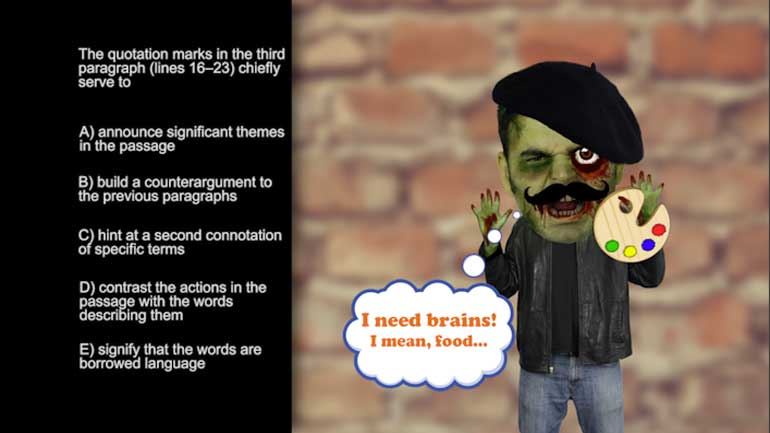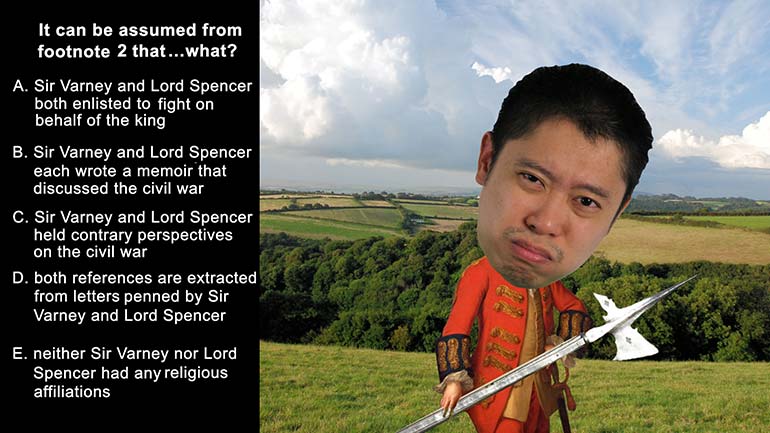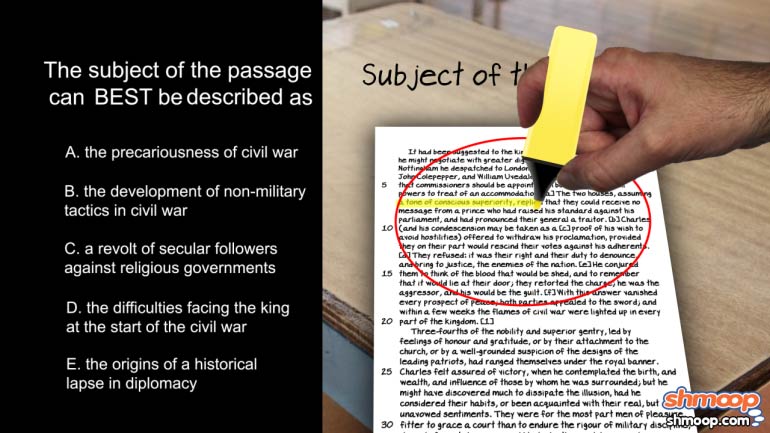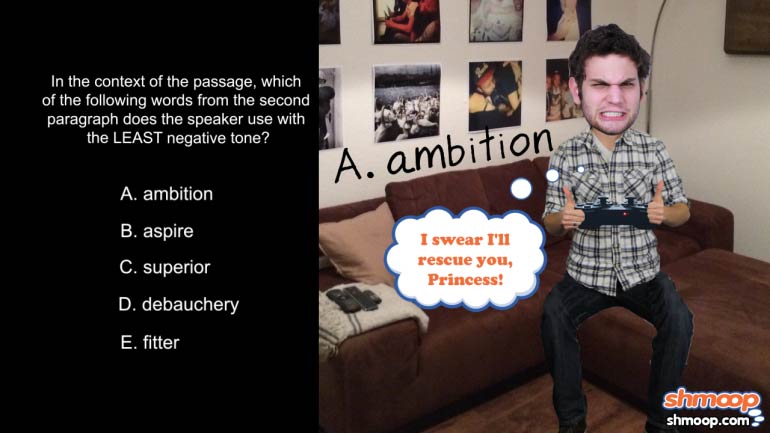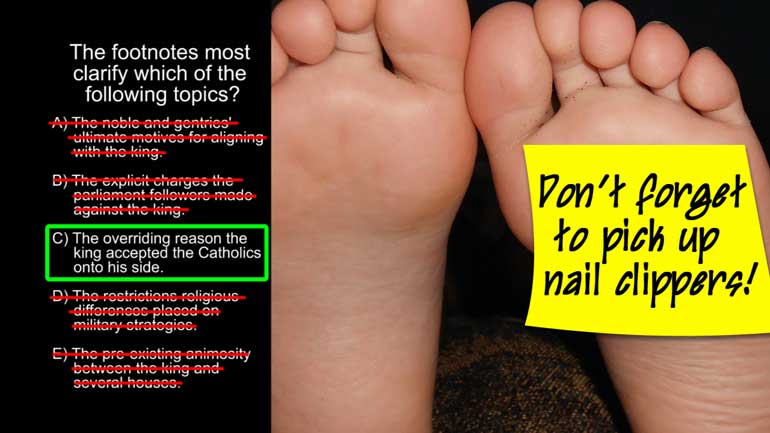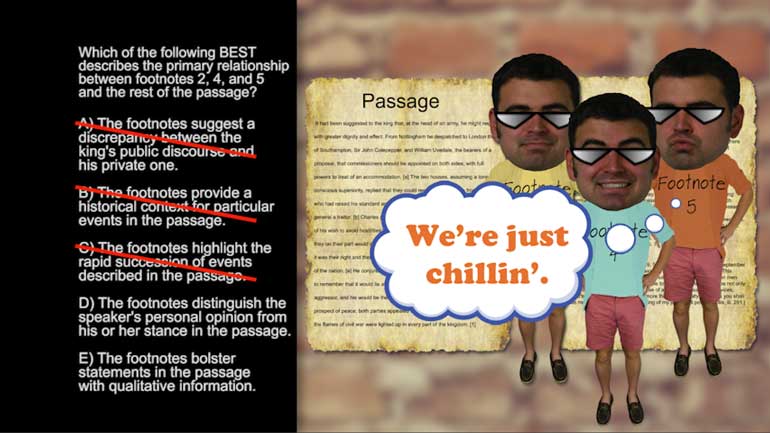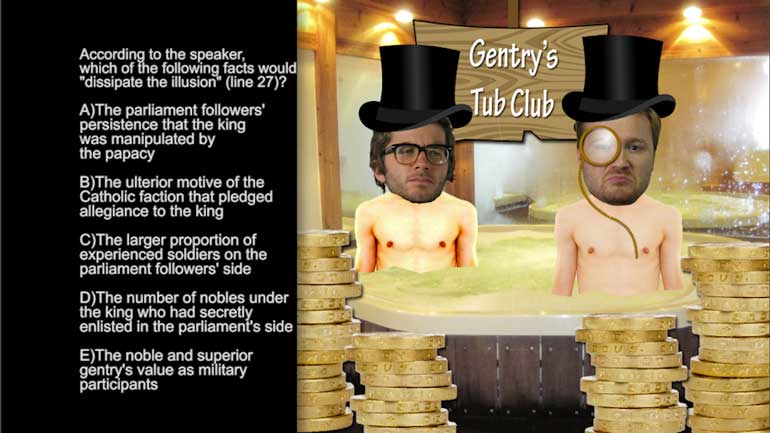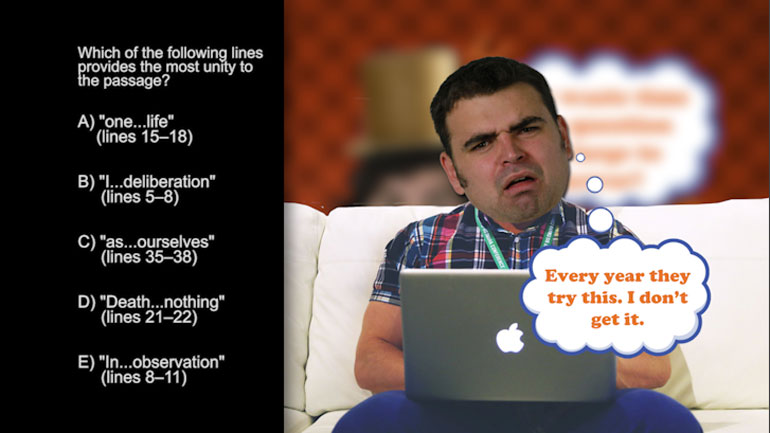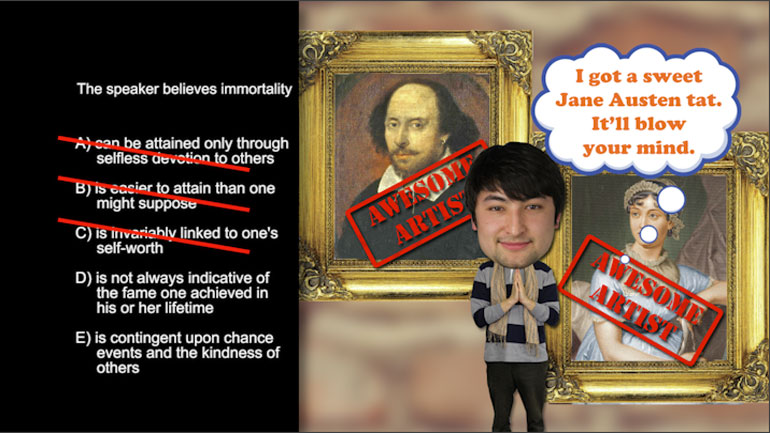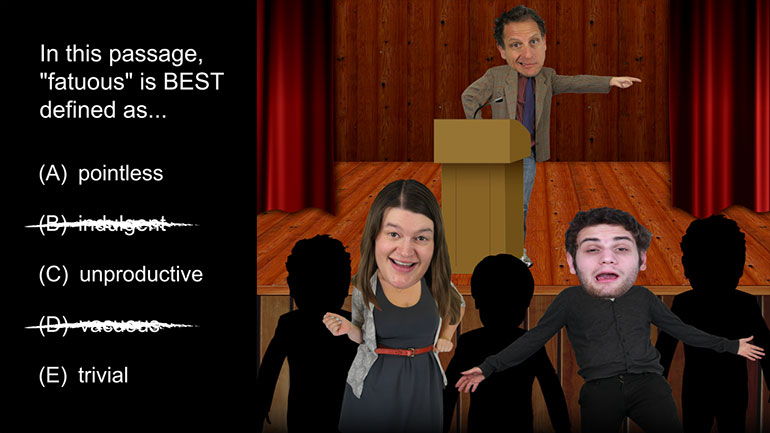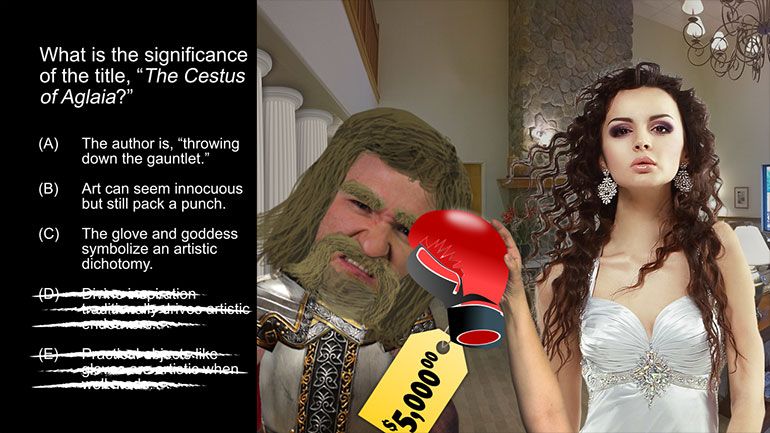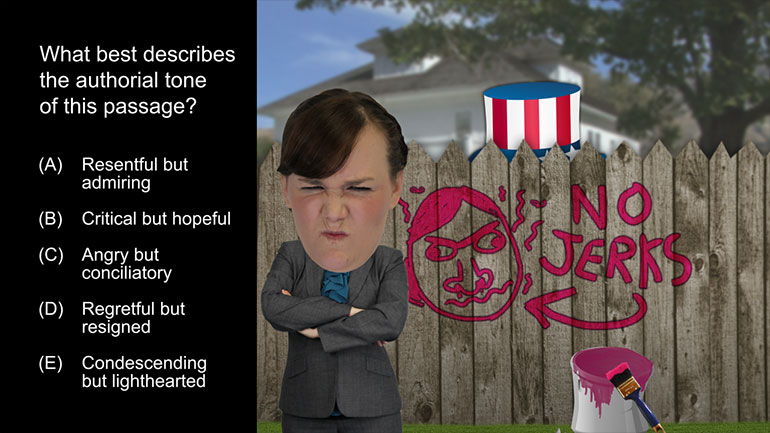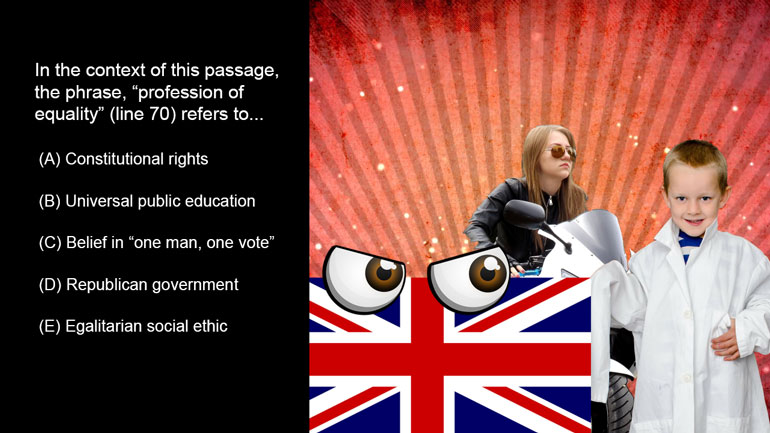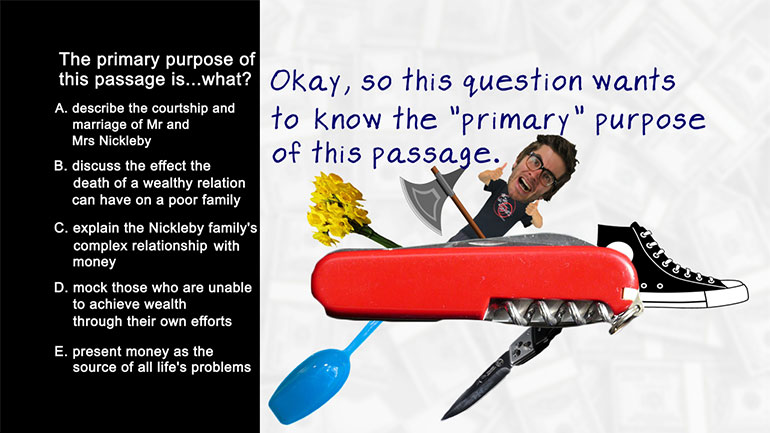ShmoopTube
Where Monty Python meets your 10th grade teacher.
Search Thousands of Shmoop Videos
Playlist AP® English Language and Composition: Passage Drills 40 videos
AP English Language and Composition: Passage Drill Drill 1, Problem 7. What is the principal rhetorical function of paragraphs one to three?
AP English Language and Composition: Passage Drill 1, Problem 8. The quotation marks in the third paragraph chiefly serve to what?
In this AP Language and Composition drill question, read the provided passage and infer information based upon footnote two. AP Language and Com...
AP English Language and Composition 7.1 Passage Drill 184 Views
Share It!
Description:
AP English Language and Composition 7.1 Passage Drill. What best describes the author's tone or "voice" in this passage?
Transcript
- 00:00
Thank you We sneak in I mean here's your shmoop
- 00:04
du jour brought to you by high fashion defying common
- 00:08
sense Well since about the late sixteen hundreds there are
- 00:13
we done skimming It smelled like common crayfish your while
- 00:17
They bathed once a year with you Okay what best
Full Transcript
- 00:30
describes the author's tone or voice in this passage And
- 00:34
here are potential answers We don't see shmoop like in
- 00:37
there anywhere okay so we're looking for the other's voice
- 00:41
Ursula the sea witch anyone finding the voice in this
- 00:45
instance means figuring out what the author's attitude is toward
- 00:48
the subject on this case that topic is zoology Geology
- 00:52
is the study of animals which is a science so
- 00:54
let's channel our inner scientist or outer scientists or whatever
- 00:58
you've got available The author maintains a pretty level tone
- 01:01
never really getting too passionate none of that lovey dovey
- 01:04
stuff for this astute academic so we can break it
- 01:07
off with answer b what about encouraging and supportive Well
- 01:11
starting online sixty the author states my purpose in the
- 01:15
present work is to exemplify the general truths respecting the
- 01:20
development of zoological science He uses the common crayfish to
- 01:24
illustrate his point and in a footnote states if crawfish
- 01:28
or not to be had a lobster will be found
- 01:30
to answer the former gerard dinner vel of francois might
- 01:35
not take too kindly to the blind callous comparison of
- 01:38
a lobster and crawfish apparently nerve al loved those little
- 01:41
critters so much Well it's said he actually walked his
- 01:44
pet lobster through the streets of paris even named the
- 01:47
sucker before he ate it The author makes it clear
- 01:50
that the only important thing here our fax sorry feelings
- 01:54
this matter of fact tone also effectively eliminates e since
- 01:57
profound and reflective would be focusing more on descriptions of
- 02:01
beauty and awe and this guy is definitely an owner
- 02:04
vow that leaves us a and c Well the author
- 02:07
doesn't sound rigid That would be more what we get
- 02:10
from a strict instructor which means answer a is correct
- 02:14
The author presents himself as being knowledgeable of the subject
- 02:17
and present it in a way that makes sense The
- 02:19
author shows Science isn't so mysterious or abstract but is
- 02:22
based on logic and facts Not that there's Any logic
- 02:25
in having a pet lobster but boy they're good with 00:02:28.418 --> [endTime] butter
Related Videos
Wishing upon a star may help you pass your AP English Language and Composition test, but answering this question would be a safer bet.
AP English Language and Composition: Passage Drill Drill 1, Problem 2. What is the speaker's primary purpose in using onomatopoeia in line four?
AP English Literature and Composition 1.1 Passage Drill 7. The primary purpose of this passage is what?
Take a look at this shmoopy question and see if you can figure out which device the speaker employs the most.
Feel like shifting gears and answering a question about shifting tones? We've got you covered. Take a look at this question and see if you can foll...

